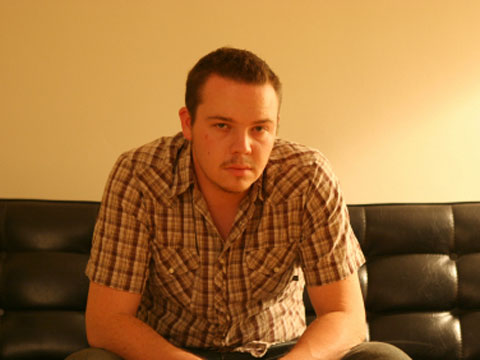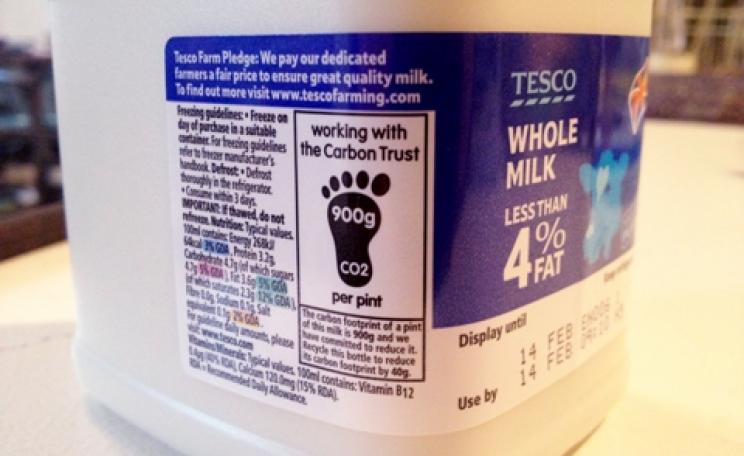Tom Levitt: What does this book say to the environmental movement?
Clive Hamilton: One should not assume that environmental activists are necessarily in the vanguard of their understanding of the science and its implications. I think a lot of environmentalists are in denial about the severity of the crisis that is starting to unfold.
The science does demand a wholesale re-thinking of how we go about dealing with climate change, because if, as the science shows overwhelmingly, there is no possibility of limiting warming to 2 degrees and we'll be lucky if we can limit it to 4 degrees, we're gonna have a radically transformed climate on earth and this changes everything.
Every other book says 'yes, it's serious but it's not too late'. They might say 'we don't have much time and it's urgent and we must act immediately' but they always say 'it's not too late'. Either because the authors believe that or they feel if they say it's too late then people will lose hope and become immobilised.
I can understand that concern, but the truth is we are past the point of no return, so we have to completely re-think the problem and not pretend there are things we can do that will save the situation.
TL: Do you worry that if we accept the reality of climate change we will bring out the worst in human instincts?
CH: There is a serious danger of that - military forces in the major countries are planning for different types of conflict to merge in decades to come so they are viewing climate change as what they call a 'threat intensifier'.
Progressive voices in the environmental movement need to start thinking about how we can shift the political system so that the response to climate change is more just and peaceful than it could otherwise be, and that is why I talk about the need to democratise survivability as much as we can and stop the poor and powerless losing out to the rich and well-connected.
TL: You quote a 13-year girl in your book saying 'we should accept the reality of climate change and deal with it'. So what is the next step?
CH: The purpose of this book is to confront people with reality of climate change rather than the comfortable stories that it could still be okay. When you really look at what the scientists are saying it causes us to re-think everything, including the whole notion of adaptation because previously it was thought of as a marginal activity.
If the pattern of climate change unfolds as broadly expected it will be a process of constant adaptation and there is a danger of making investments that will become dated in decades when we realise we didn't go far enough.
I worry about immediately leaping to what we can do because I think we have to accept this very different future first and I don't think we are anywhere near doing that yet.
TL: Is there a danger that this kind of reality will lead to apathy?
CH: The only way we can maintain our integrity and dignity is not to retreat into apathy and indifference but to become more active and that includes civil disobedience if necessary. Telling the truth doesn't mean you stop acting if the truth is very bad. This is not a justification for helplessness based on despair. But if you're not despairing your not listening to the scientists because that is the reality.
It's too late to avoid dramatic climate change this century, but there are degrees of changes that can be influenced by what we do over, in particular, the next decade or two.
You can sit back and say, oh we're going have terrible climate change and there's nothing I can do about that, but if those people have children then they are pretty poor parents not to worry about the conditions in which their children will live. I think that is a pretty powerful incentive to as much as we can to at least delay the worst effects and begin preparing ourselves for life in a transformed climate.
TL: Can we solve climate change?
CH: We can't avoid it because we've left it too late. Ten years ago if the major countries of the world had embarked on far reaching policies to reduce their GHG emissions we would have had a good chance of avoiding most of the effects.
All the science suggests that in this century and the next the climate is going to be changed in many ways hostile to humans and life in general - we're not going to avoid that.
The question of solving it is out of the question. It's not like urban air pollution, where when it gets bad enough you introduce some laws on catalytic converters and it goes away, because we have set off a huge process of change in the global climate system which has its own dynamic.
TL: What about geoengineering?
Geoengineers are saying that we humans should take control of the atmosphere of the earth in order to modify it in ways that suit us, in a way to operate a global thermostat, which we then fiddle with in a way that is in our interests - assuming that the great diversity of interests around the world could meet some consensus, which they probably couldn't.
It's rich white blokes saying, 'well we've got to take control of this problem and we're going to engineer the atmosphere'. I just find that the most audacious and terrifying proposal that humans have ever put forward.
Fundamentally, the technological capabilities of human beings are far in advance of the psychological maturity, which is why I think if we embark on geoengineering built on the psychological predisposition and weakness that have given us climate change we are only going to make the problem worse. I think we are insufficiently evolved as a species to responsibly intervene in the earth's atmosphere.
TL: You talk about the failure of green consumerism, do you think our desire to consume is a block on tackling climate change?
CH: It's a huge obstacle because people have become habituated to their consumerist lifestyle. I mean ten years ago people were quite happy without mobile phones but if you took them away today there would be riots in the streets. But only for a little while, because people would become quite used it.
People are afraid of change and use consumerism in our types of affluent societies as a way of defining themselves and gaining a sense of personal identity. It worries me when environment groups pander to that by effectively arguing we can consume our way out of trouble and I don't think we can.
However, I don't think consumerism is essential to human nature. Most cultures in most times haven't been driven by astounding greed and materialism. Forty years ago in the UK the levels of consumerism and materialism were vastly less than today so we're talking about a very modern phenomenon.
Not to say human greed hasn't manifested itself for much of human history but it is only in very recent times that greed and intense materialism has become the dominant characteristic of certain society. But even in our types of affluent societies there are certain sub cultures that don't engage in that intensely materialist treadmill that so dominates public thinking and policy and private behavior, for example downshifters.
People are able to escape the clutches of consumerism but it takes a wrench, and I don't think we have time to wait for a possible social revolution in which we transcend consumerism and materialism before we take measures to tackle climate change.
TL: So what can individuals do or are they powerless?
CH: They need to think of themselves as citizens not consumers. As consumers they can't make a difference. I don't mind if people advertise ten things you can do to reduce your level of personal guilt but I think its wrong to say 'ten things you can do to tackle climate change'.
The truth is green consumerism has made virtually no difference and shifts responsibility from the shoulders of the big polluters and governments that need to introduce the policies onto individuals. Individuals as citizens - that is political actors - can be very effective because it is only through far-reaching mandated policy change that we will get anything like the response we need.
Clive Hamilton is the author of Requiem for a Species: Why We Resist the Truth About Climate Change. For a 20 per cent discount off the RRP £14.99, enter code Requiem20 when you order online here
| READ MORE... | |
 |
NEWS ANALYSIS Seeking status: embracing our selfish motives for buying green The bulk of our motives for buying green are selfish, say psychologists. So would appealing to social positioning help shift behaviours better than moralising? |
 |
NEWS ANALYSIS The psychology of climate change: why we do nothing Well-publicised simple steps like using energy-saving light bulbs may be making it more difficult to prepare people for the bigger changes needed to tackle climate change, argue psychologists |
 |
HOW TO MAKE A DIFFERENCE Climate change needs persuasive art, not propaganda What is art's role in raising awareness of climate change? In this extract from her passionate, poetic essay 'The Far-seers of Art', Jay Griffiths explains why culture without nature is as good as worthless |
 |
COMMENT Are people fundamentally selfish and self-motivated? In this email debate, leading environmentalists Solitaire Townsend and Tom Crompton thrash out that thorniest of questions: do people really care about more than themselves? |
 |
INTERVIEW Erik Assadourian: our society needs some serious cultural engineering The editor of the influential Worldwatch 'State of the World' report on the best ways to transform cultures from consumerism to sustainability |








